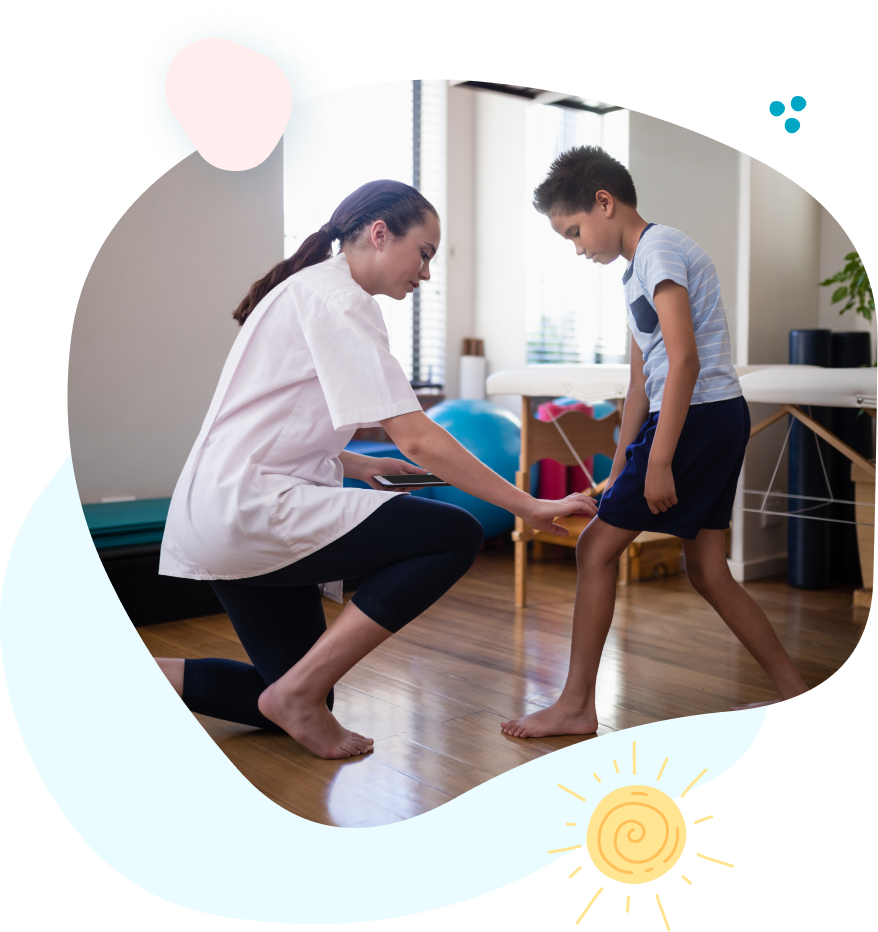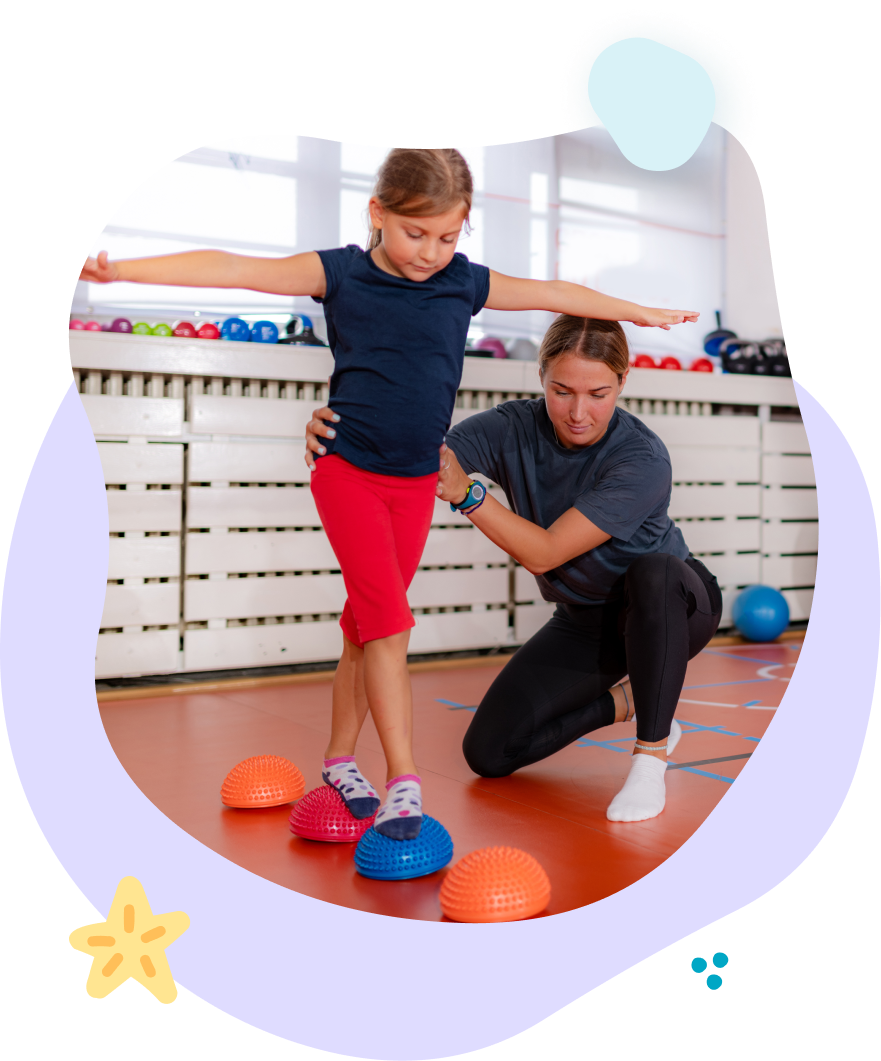Your Clinic
SET A LOCATION
Your Clinic
SET A LOCATION
Balance difficulties in children can significantly affect their mobility, independence, and overall quality of life. These challenges may present as frequent falls, difficulty navigating uneven surfaces, or delayed motor milestones. Identifying and addressing these concerns early through physical therapy (PT) and occupational therapy (OT) can make a substantial difference in a child's development and confidence.
Children with balance difficulties might experience:
Frequent falls or trouble maintaining stability during activities.
Such as standing up from the floor or chair.
May be delayed in achieving milestones like crawling, standing, or walking independently.
Children may prefer to hold onto objects or others for support in unfamiliar settings.
These challenges may stem from various factors, including muscle weakness, motor coordination issues, or underlying conditions affecting the vestibular system, which helps regulate balance.

PPT4Kids provides specialized tools to help children develop better stability, coordination, and confidence in their movement. Our interventions target the underlying systems that support safe, functional mobility in everyday activities.

Attend our clinics for expert orthotics evaluations and fittings, designed to improve mobility and ensure optimal comfort tailored to your needs. Children at PPT can attend monthly clinics for custom wheelchairs or orthotics, designed to enhance mobility and ensure proper postural alignment. These specialized devices support proper body alignment and improve functional mobility.
PPT uses cutting-edge tools like Galileo whole-body vibration platforms and Mano dumbbells to enhance therapy outcomes. Therapeutic vibration helps to optimize neuroplasticity, promote motor learning and decrease the complications of many childhood conditions that limit movement, sensory processing skills, and learning. A unique therapeutic intervention used to decrease muscle tightness, change habitual patterns of movement in a single joint, or improve range of motion.

Physical therapy (PT) focuses on enhancing strength, coordination, and motor control to address balance issues. Key interventions include:
Building stronger core and lower limb muscles to support better posture and control.
Incorporating exercises that improve coordination, such as stepping over obstacles or walking on balance beams.
Working on walking patterns to ensure smoother and more confident mobility.
Tailored activities that support the child’s inner ear and sensory system to improve balance responses.
Occupational therapy (OT) complements PT by integrating functional skills and motor control into daily routines. For balance difficulties, OT can provide:
Incorporating balance-focused activities like climbing, jumping, and transitioning between surfaces into everyday tasks.
Helping children process sensory information effectively, which can reduce anxiety and improve balance.
Suggesting changes at home or school to create safer environments that promote movement.
Introducing equipment like weighted vests or stability aids to build confidence and independence.
When balance issues are left unaddressed, they may lead to social challenges, limited physical activity, or even chronic pain as children grow. Early intervention helps children:
Our team of dedicated physical and occupational therapists specializes in supporting children with balance difficulties. Through customized care plans and engaging activities, we help children achieve their milestones and enjoy greater freedom in their movements.
If your child struggles with balance or coordination, don’t hesitate to reach out. Schedule an evaluation with our experienced therapists and begin their journey to improved mobility and confidence!
We empower children, families, and the community to learn, grow, and celebrate every child's unique abilities.
Quick Links
Contact Details
Phone: 561-376-2573 | 561-918-0190
Fax: 561-218-4939
VIP Concierge: 561-717-1764
Clinic Locations
All Rights Reserved | Progressive Pediatric Therapy, Inc. | Privacy Policy | Terms of Service
Site by Spearlance